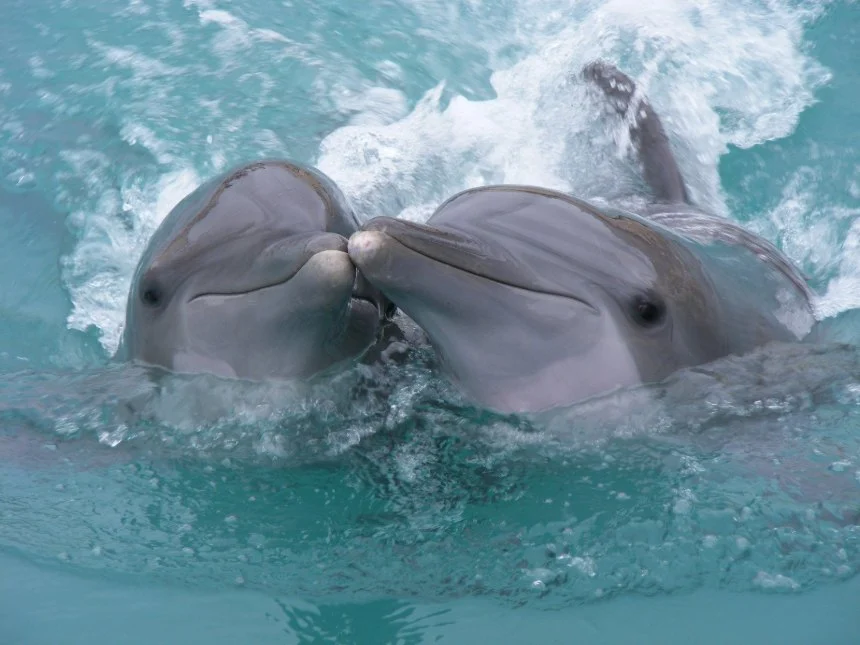Under the conventional framework of human rights, the prevailing notion has been that humans, due to their unique traits such as rationality, moral agency, and inherent dignity, are the sole bearers of rights.
This anthropocentric perspective asserts that being human is both necessary and sufficient for holding rights. Such views deeply root human rights in a “naturalistic” conception, drawing on presumed exceptional qualities of humans to justify moral and legal privileges that are not extended to other beings.
However, this traditional perspective on human rights faces significant ethical and logical challenges, particularly when confronted with the capabilities and sufferings shared across species boundaries.
Other species exhibit forms of cognition, emotion, and social complexity that were once thought unique to humans.
This paper argues for a shift from a human-centric to a transspecies approach to rights, critically examining the grounds of human exceptionalism and exploring the potential for extending rights beyond humans to other sentient beings. This approach challenges us to rethink our moral obligations and the foundation of rights in the light of contemporary understandings of biology, sentience, and ethical consistency.
Challenging Human Exceptionalism
The doctrine of human exceptionalism holds that specific traits such as advanced cognitive abilities, moral agency, and inherent dignity are unique to humans and thereby provide a justifiable basis for exclusive human rights. This perspective has traditionally made a clear distinction between humans and other species, arguing that these distinct traits warrant a different and superior moral and legal status for humans alone.
Embracing transspecies rights fosters societal introspection on the definitions and applications of justice.
However, upon closer examination, this view appears increasingly problematic. The notion that only humans possess these capabilities is contradicted by growing scientific evidence demonstrating that other species exhibit forms of cognition, emotion, and social complexity that were once thought unique to humans.
For instance, numerous studies have shown that animals like dolphins, elephants, and some primates engage in behaviors indicative of complex thought processes and emotional responses, challenging the idea that cognitive sophistication is exclusive to humans.
Furthermore, the reliance on these traits as a basis for rights can lead to inconsistencies and moral dilemmas. If rights are tied strictly to cognitive abilities or moral agency, does this mean that human beings who do not fully possess these traits—such as infants or individuals with certain disabilities—should be denied the same rights? This line of reasoning leads to a slippery slope, raising ethical questions about the inclusiveness and fairness of human rights frameworks based on exceptionalism.
By re-evaluating the basis of rights to reflect a broader understanding of sentience and cognitive abilities across species, we can develop a more inclusive framework. This shift towards recognizing transspecies rights challenges us to extend ethical considerations to all sentient beings, fostering a more equitable and compassionate legal and moral landscape.
Sentience and Rights: A New Philosophical Paradigm
The advocacy for transspecies rights represents a paradigmatic shift in ethical philosophy, challenging human-centric biases ingrained in traditional rights frameworks. Central to this shift is the recognition of sentience as the primary criterion for rights allocation, transcending previously exclusive human attributes. Non-human animals, displaying complex cognitive and emotional capacities akin to humans, warrant inclusion based on the principle of moral consistency, akin to the argument from marginal cases. This inclusive stance broadens concepts of dignity and moral worth beyond human boundaries.
Educational initiatives play a crucial role in supporting the legal changes.
Ethically, extending rights to non-human animals confronts entrenched anthropocentric prejudices evident in practices like animal exploitation.
It necessitates reevaluation of practices such as research, factory farming, and entertainment, aligning with the principle that ethical value is independent of species membership. Upholding fairness dictates that criteria for rights acknowledgment, like pain avoidance and well-being pursuit, apply universally to all sentient beings.
Moreover, embracing transspecies rights fosters societal introspection on justice definitions and applications, catalyzing legal and cultural evolution. This evolution reflects a maturation of ethics toward a globally interconnected and ecologically conscious society, wherein safeguarding the well-being of all sentient beings contributes to environmental health. In sum, transspecies rights advocacy heralds a more equitable and compassionate society, grounded in the acknowledgment of sentient beings’ intrinsic worth and shared moral considerations across species boundaries.
Practical Challenges and Legal Implementation of Transspecies Rights
Implementing transspecies rights introduces a series of practical challenges that must be addressed to ensure these rights are not only theoretical but also effective in promoting the well-being of non-human animals. One of the main challenges is the legal recognition of animals as rights holders, which requires a fundamental shift in the legal systems currently centered almost exclusively on human interests.
Legally, this shift would necessitate creating or modifying statutes and regulations to acknowledge the rights of sentient non-human animals to live free from unnecessary pain, suffering, and exploitation. This could involve banning or heavily regulating practices such as intensive factory farming, inhumane slaughter methods, and certain types of animal testing that fail to meet ethical standards respecting animal welfare.
The push for transspecies rights underscores the interconnectedness of all life and the ethical implications of this interdependence.
Moreover, enforcement mechanisms must be robust enough to ensure that these rights are more than nominal. This includes establishing oversight bodies equipped to monitor compliance with new legal standards and empowered to enforce them effectively. Additionally, there must be an accessible legal avenue for advocates to seek redress on behalf of animals, ensuring that violations of transspecies rights are addressed swiftly and justly.
Educational initiatives also play a crucial role in supporting the legal changes. By raising awareness of the cognitive and emotional capacities of animals and the ethical grounds for their rights, societies can cultivate a cultural shift towards greater empathy and respect for non-human life. This cultural shift is crucial for the acceptance and successful implementation of transspecies rights.
Finally, international cooperation will be essential, as the movement for transspecies rights must cross national boundaries to be truly effective. Developing a consensus on minimum standards for animal welfare and rights across countries can help to prevent the relocation of unethical practices to less regulated regions. Such cooperation would also facilitate the sharing of best practices and innovations in humane treatment and care for animals, further embedding the principles of transspecies rights globally.
Conclusion
The recognition of transspecies rights represents a profound shift in our ethical landscape, urging us to redefine the boundaries of moral concern and legal responsibility. This movement away from an anthropocentric view of rights toward a more inclusive framework that embraces all sentient beings does not merely challenge existing legal and social structures but also calls into question our deepest philosophical beliefs about value and justice.
This paradigm shift recognizes that the traits once thought to distinguish humans—such as rationality, self-awareness, and the capacity for moral agency—are not only present to varying degrees among non-human animals but also are not the sole arbiters of moral worth. Instead, the capacity to experience suffering and joy emerges as a more just and equitable foundation for rights. This redefined basis for rights aligns more closely with the principles of fairness and harm reduction, which should guide our interactions not just among humans but across all species.
Moreover, the push for transspecies rights underscores the interconnectedness of all life and the ethical implications of this interdependence. It challenges us to consider not just the direct effects of our actions on other humans but also the broader impact on all beings capable of experiencing the outcomes of those actions. This expanded ethical consideration is crucial in a global ecosystem where the boundaries between human activity and the natural world are increasingly blurred.
Adaptation by Politics and Rights Review of an academic chapter, under license CC BY 4.0. Revised and approved by the author.









